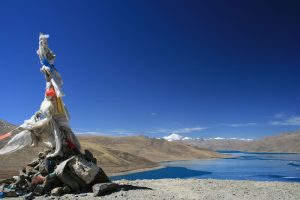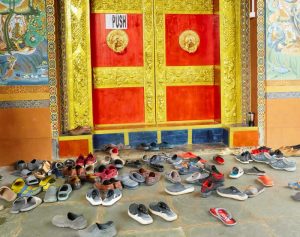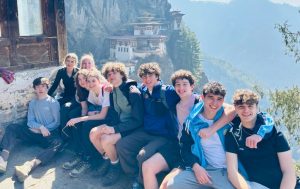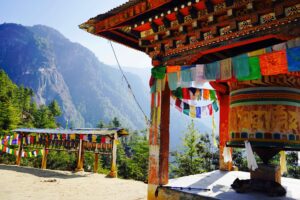Be Somebody
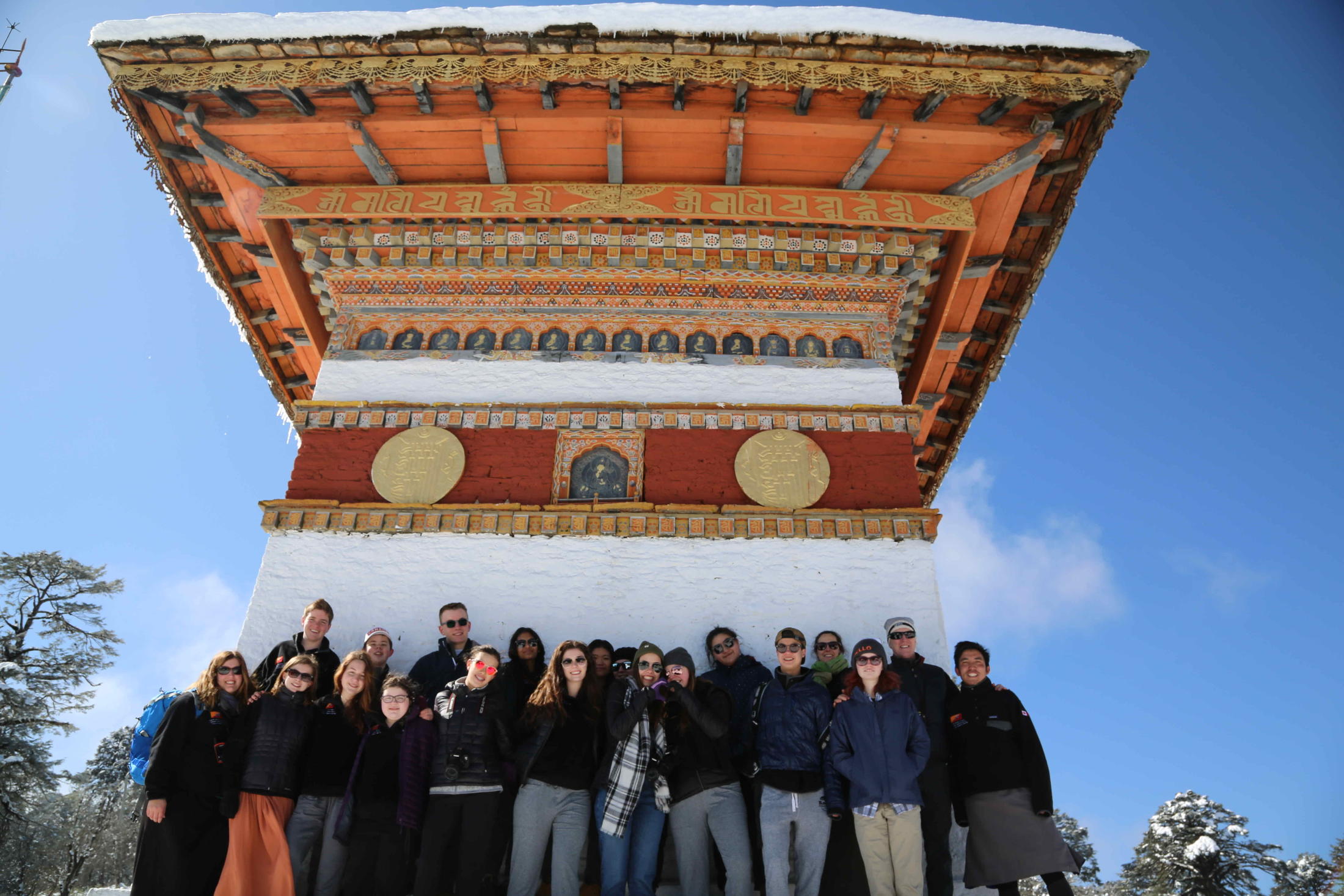
We kicked off the day with the beautiful sight of the Dochula Pass, where we learned about Stupas which are small temple-like buildings built in honour of someone important who has died. These particular stupas were in honour of Bhutanese soldiers who died in a war over the tallest unclimbed peak in the world. (There is a law in Bhutan related to Bhutanese culture that states that all unnecessary climbing of mountains is forbidden out of respect for the mountain.) The Chinese through Tibet said that they had claim to the mountain since the north face was over the Tibetan border. The peak, however, is on the Bhutanese side and there for subjected to Bhutan law i.e; no mountain climbing. This was not respected and the Bhutanese went to war. Bhutan won and the Queen had the stupas erected in honour of those lost in the war. On the same peak there was a temple that we visited that had both beautiful architecture and decor.
Next we visited the Institute of Textiles and Art, this is a kind of post-secondary education that teaches the traditional arts of Bhutan. The schools’ slogan was “Get skilled, be somebody!” We got to see students carving blocks of wood, embroidering fabrics, sculpting and designing clothes like the ones you can see all throughout the city. It was very cool to see all these works of art in progress. One thing that a lot of us found interesting was the fact that all the students of each craft were copying the same piece: all the sculpting students were making the same Buddha statue, all the embroiderers were making the same design. This was surprising to us since in our art classes we are encouraged to be creative and decide how to make the piece our own. These people were copying off grids. I assume that this is because the culture and arts in Bhutan is such an important part of their culture that it all has to look the same. There is a law that states that if you are building a new building it must have an exterior that matches that of the surrounding buildings. If artists start thinking outside of the box then the traditional paintings, sigils and imagery may be lost to time. We had a chance to visit the gift shop and try our hand at haggling, however not many of us had Bhutanese money yet so we were a little limited, but the shop gracefully allowed us to run a “tab” and Gayley, one of our guides went back to pay later.
We then visited the largest sitting Buddha in the world, which was looking out to a gorgeous view of Thimphu, Bhutan. The Buddha had a foundation of clay and a surface made of copper and gold plated. When walking around the Buddha we could only walk clockwise, it is part of the Buddhist religion when visiting religious sites, it must always be clockwise. The idea of building the Buddha was from a llama, who believe it would better Bhutan as a country. The building of the Buddha began in 2008 and is still having work done today. it is said that the Buddha will not be completed till 2060. Everyone working on the building of the Buddha are volunteers, they believe that it will save them from their sins and better them as individuals. We were all in awe with the view from the mountain, being able to see the city below along with the endless mountains was breathtaking.
We ended the night off with a speaker named Wesel, she spoke to us about Gross National Happiness. She spoke about how Gross National Happiness is more important than Gross National Product. We learned that GNH is the development with values, it is the bride for kindness, equality and humanity. The question asked was,”Why is it so important today?” The first challenge was the spiritual challenge, the attachment and greed we hold, the anger and hatred and ignorance. The second challenge was economic and ecological challenges, the fact that we spend more that we earn, that we need to find the balance between our needs and wants and the disconnect between ourselves and others. The last challenge was political leadership, how short term specific happiness is a specific interest, but long term is serves us for real happiness and overall well-being. Overall the take away from this presentation was that we need to begin focusing on whether our everyday lives truly makes us happy or if we are driven more for the money. Lots to think about.
Tomorrow morning we are up early to travel from Thimphu back to Paro where we begin our two days of our learning exchange with Utpal Academy. We are looking forward to experiencing the school culture and making some Bhutanese friends.
Catherine McLean & Katie Thom (Students)

